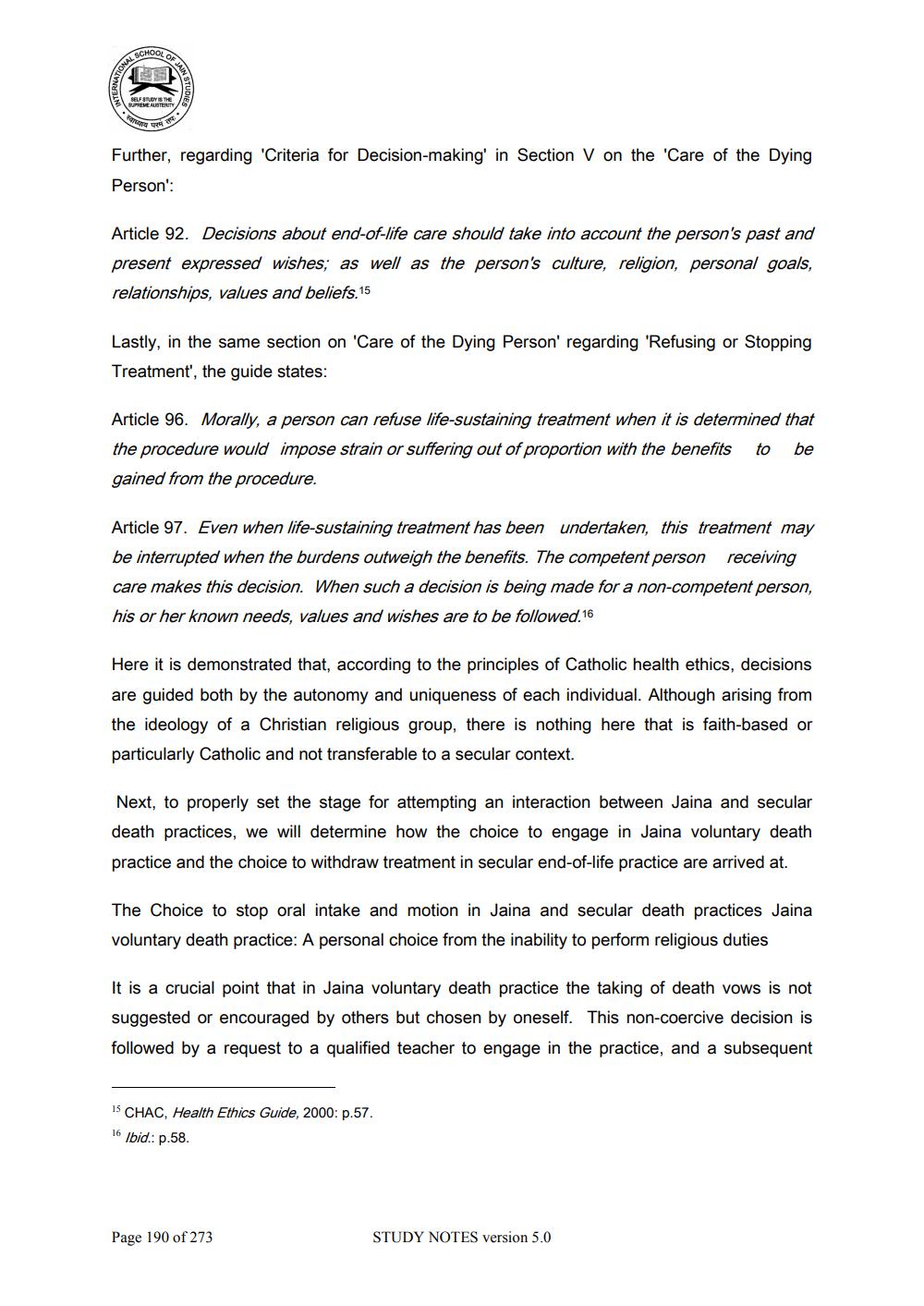________________
SCHOOL
TIONAL
OF
SELF STUDY IS THE SUPREME AUSTERITY,
स्वाध्याय परम तप
*
STUDIES
Further, regarding 'Criteria for Decision-making' in Section V on the 'Care of the Dying Person':
Article 92. Decisions about end-of-life care should take into account the person's past and present expressed wishes; as well as the person's culture, religion, personal goals, relationships, values and beliefs.15
Lastly, in the same section on 'Care of the Dying Person' regarding 'Refusing or Stopping Treatment', the guide states:
Article 96. Morally, a person can refuse life-sustaining treatment when it is determined that the procedure would impose strain or suffering out of proportion with the benefits to be gained from the procedure.
Article 97. Even when life-sustaining treatment has been undertaken, this treatment may be interrupted when the burdens outweigh the benefits. The competent person receiving care makes this decision. When such a decision is being made for a non-competent person, his or her known needs, values and wishes are to be followed.16
Here it is demonstrated that, according to the principles of Catholic health ethics, decisions are guided both by the autonomy and uniqueness of each individual. Although arising from the ideology of a Christian religious group, there is nothing here that is faith-based or particularly Catholic and not transferable to a secular context.
Next, to properly set the stage for attempting an interaction between Jaina and secular death practices, we will determine how the choice to engage in Jaina voluntary death practice and the choice to withdraw treatment in secular end-of-life practice are arrived at.
The Choice to stop oral intake and motion in Jaina and secular death practices Jaina voluntary death practice: A personal choice from the inability to perform religious duties
It is a crucial point that in Jaina voluntary death practice the taking of death vows is not suggested or encouraged by others but chosen by oneself. This non-coercive decision is followed by a request to a qualified teacher to engage in the practice, and a subsequent
15 CHAC, Health Ethics Guide, 2000: p.57.
16 Ibid.: p.58.
Page 190 of 273
STUDY NOTES version 5.0




